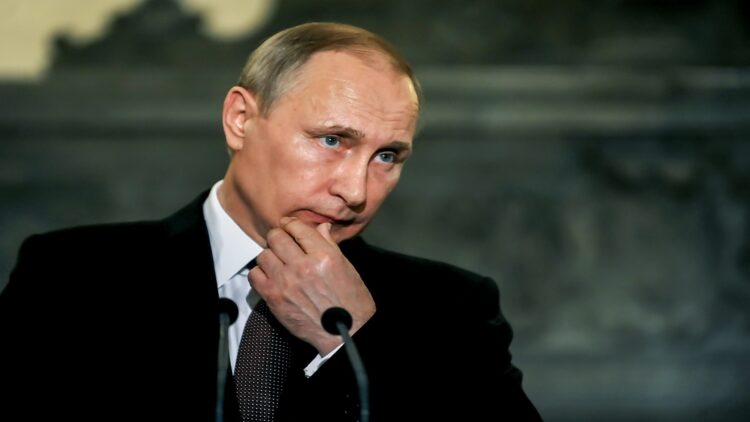German Chancellor Friedrich Merz has floated the idea of releasing frozen Russian property to open a colossal EU loan amounting to €140 billion to Ukraine, a huge departure from Germany’s practiced skim and shimmer tactic of spending metallicized Russian riches. The right-wing chancellor described his proposal in an op-ed published in the Financial Times, in which he demanded the solidarity of Europe, which will contribute to the defense operations of Ukraine.
Germany changes its position regarding the usage of frozen Russian assets
The proposal by Merz is a refreshing change to the traditionally conservative stance of Germany toward the seizure of Russian property. In the Financial Times, the chancellor admitted that Germany has been, and still is, cautious on the question of seizing the assets of the Russian central bank frozen in Europe, and rightfully so.
But, he added, this must not be used as an excuse to delay efforts to raise the money to finance the fight in Ukraine. The proposal would also offer Ukraine an interest-free loan without involvement in property rights, which are concerns of the law that had posed challenges to such undertakings. And then, Merz explained, Russian repayments were not a condition of such drawing, but rather, as Merz put it, they are going to pay back the money only after they recoup Ukraine for the damage it has suffered in this war.
The proposal is to systematically increase the aggression expenses in Russia
The chancellor of Germany presented his offer as a political weapon in piling more pressure on Moscow. Such assistance to Ukraine under this system would complicate the costs of Russian aggression mapping on a grand and organized scale, making the loan look like a demonstration of humanitarianism and economic conduct of war, as Merz described it.
The Sundiata loan of €140 billion would be insured by EU member states and would have to be approved by a large majority of member states. This solution aims to overcome concerns of detracting trust in the euro as a reserve currency and still be able to tap into the vast amounts of money in frozen Russian accounts.
Since the war in Ukraine, Western allies have frozen hundreds of billions of euros in Russian assets, including the majority of the money in the Euroclear depository in Brussels. Governments in the EU have traditionally avoided seizing the money in one block, as this would have weakened trust in it as a reserve currency.
The President of the European Commission is in favour of a reparations loan
Merz’s suggestion can be similar to the recent attempts of European Commission President Ursula von der Leyen, who has called for a new loan, dedicated to reparations, to Ukraine in her State of the EU speech earlier this month. The EU is now attempting, again, to utilize these frozen assets to support Ukraine’s continued defense spending.
The chancellor of Germany said that he would consider his proposal with European leaders, gathering in Copenhagen next Wednesday, aiming to gain momentum on the efforts. At the European Council, which we will have at the end of October, I am proposing to you that we issue the mandate to prepare this instrument in a legally secure way. The proposal focuses on creating a legally guaranteed system that considers property rights without depriving Ukraine of funds.
The plan of Merz is a massive development in the European line of thinking with respect to support of Ukraine using frozen Russian assets. This is because the EU can use the loan amounting to billions of euros to ensure that Ukraine has a greater supply of resources in defending its country without jeopardizing legal protections and thereby heaping more pressure on Russia to halt its aggression.


